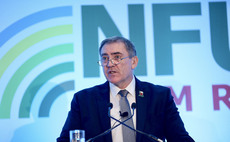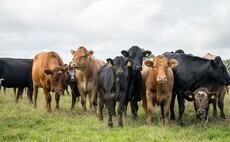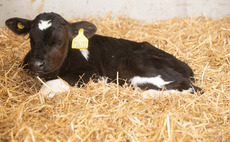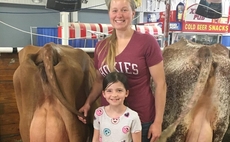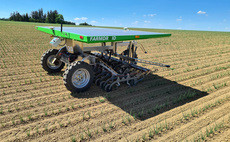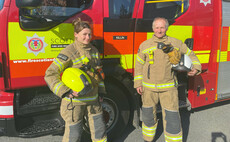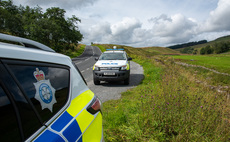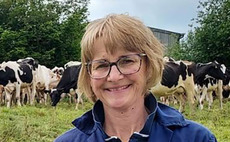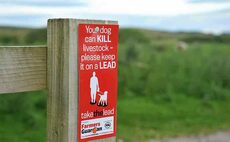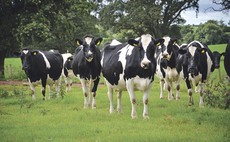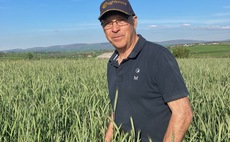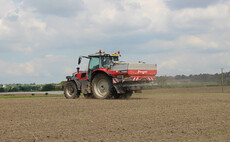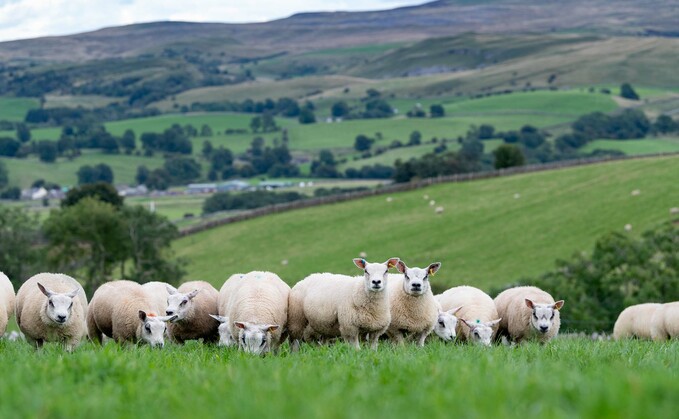
Bluetongue cases have once again risen across the UK this week with the East of England continuing to be the focus of the outbreak. In a bid to stem the spread, the Secretary of State for Defra has authorised the use of three bluetongue serotype 3 (BTV-3) vaccines.
The move was welcomed by the National Sheep Association with chief executive Phil Stocker saying it was a ‘necessary step' to help control the disease. He said: "Although the vaccines are suppressive in nature rather than preventative, they are expected to dampen symptoms, reduce suffering and mortality, and hopefully reduce the risk of further transmission."
Bluetongue
And with bluetongue now found on the east coast of France, Chief Veterinary Officer (CVO) Dr Christine Middlemiss said she was ‘worried' about the risk to farms and animal keepers in Kent and along the South Coast. Dr Middlemiss said: "We have not seen disease there yet, but they are at risk of the disease coming over from the east of France."
READ ALSO: Defra grants emergency permit for bluetongue vaccines to be used in England
As �������� Guardian went to print, there were 38 confirmed cases of BTV-3 across Norfolk, Suffolk,Essex, East Yorkshire and North Lincolnshire. When probed if she thought the virus could lead to the scale of bluetongue cases found in the Netherlands, Dr Middlemiss said she did not expect it ‘to get that bad', pointing out the difference in livestock population density between the two locations.
Restriction zones
Dr Middlemiss stressed the current restriction zones put in place in England were helping to tackle the disease at this current time. She said: "I know it makes life difficult for people in the restriction zone, but it really does stop the progression of the disease."
It was a messaged echoed by Scotland's CVO Sheila Voas who said she was ‘concerned' by the risk to Scotland following the case found in East Yorkshire. She said she felt ‘more worried' about the virus now than she did a year ago, due to the virus ‘circulating' among livestock in East Anglia.
'Tipping point'
When challenged about how the industry would cope if bluetongue did spread across Scotland and Wales, where there are currently no confirmed cases, Ms Voas said ‘we would have to cope'. "The difficulty is if the disease is circulating. We can put control zones in place, but there will come a point when the controls are harder to live with than the disease itself," she said, adding they would continue to talk with the industry to understand if the ‘tipping point' comes.
READ ALSO: Baroness Kate Rock has Defra role terminated
Regarding administration of the vaccine, Ms Voas said the focus should be about controlling the disease in the areas where it currently is, ‘rather than having a scatter gun approach to vaccinations'. As the vaccine is not able to stop animals being infected, she said it was a ‘balancing act', adding it was important not to ‘mask disease which is present in vaccinated animals'.
Netherlands
Dr Middlemiss was asked whether the UK was likely to suffer an outbreak similar to that of the Netherlands, where cases have topped 5,990, she said she did not expect it ‘to get that bad', pointing out the difference in livestock population density. She said: "We have been learning a lot from the Netherlands. They are not having as many clinical signs and not having as many deaths on farms. They have vaccinated about 95% of their sheep flock now, but it is not stopping disease or stopping the spread."
When asked what the cost would be to the farmer to purchase these vaccines from their local veterinary practice, Dr Middlemiss said it would be in the ‘ballpark of other vaccinations' which farmers use, but it would be a ‘commercial decision' with manufacturers and the whole supply chain.
Bluetongue vaccine
When the CVO for Wales, Dr Richard Irvine, was asked about the potential use of a bluetongue vaccine in Wales, he said it was important to first ‘weigh up the pros and cons' and the reasons why the industry would want to use a vaccine, while also assessing the level of risk in Great Britain. "It is my understanding that Defra is looking at a phased approach to the licence use, so that the availability in effect is prioritised to the high-risk areas."
READ ALSO: Defra £130 million underspend of agriculture budget a 'kick in the teeth'
Dr Irvine said he was monitoring the threat ‘very closely' and urged farmers to be ‘cautious' to ‘help keep Wales safe'. He encouraged Welsh farmers who planned to go to sales and markets to work closely with their vets and seek advice. Dr Irvine said: "What we do not want to do is inadvertently buy bluetongue into Wales. It is crucial farmers work closely with vets to understand what the risks are, understand where the risks are and understand what to look out for as well."
Other disease threats
Dr Middlemiss added with the current control zones and restrictions in place, there should not be any reason to believe any animals at the sales would be infected with bluetongue. When probed about how much of a priority bluetongue was in light of other animal disease threats, including African swine fever, avian influenza and bovine TB, she said that while it was important to deal with the bluetongue threat, it must not be their ‘absolute focus'.
Ms Voas said they were ‘not dropping the ball' on other diseases, but admitted bluetongue required ‘the most urgent manpower'. Ms Voas emphasised the importance of ‘working with the industry', adding it is the understanding that when the ‘tipping point' comes, it may mean things are not ‘ideal for one or two farms', but it is a decision which has to be made for animal health and welfare and for the sector as a whole.












